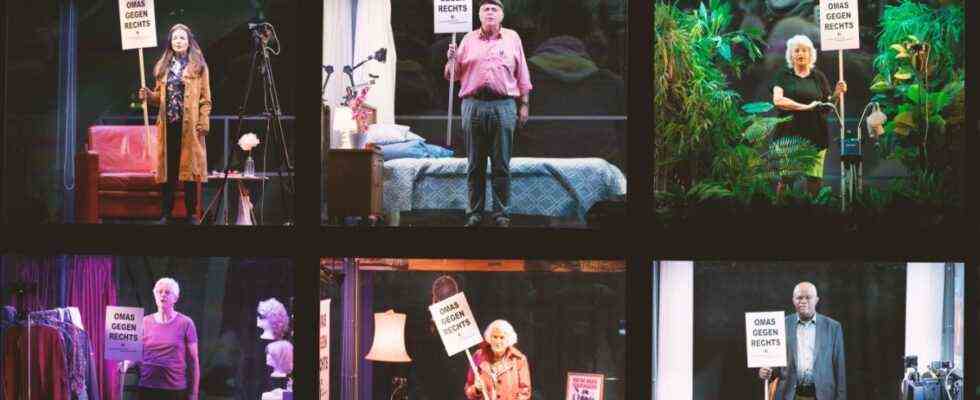Men attending the opening premiere of Festival Theaterformen in Hanover in the theater there came, first experienced an attempt at shame. Those who still felt pressure on the bladder were confronted with the fact that the pictograms were removed from the toilet doors. In the urinals, under the slogan “Flowers for a world without gender”, plants were placed in plastic pots to force men to use the toilet bowl. Which of course neither the old nor the young men did, who are conditioned to aim at cloisters, flies and football goals. And when the poor plants were rained in, they reacted irritably to the festival’s arrogant upbringing attempt.
Two hours beforehand, at the opening speeches of the traditional Lower Saxony summer festival, there was a lot of enthusiasm about community, global solidarity and communication of the “impulses”. Various protagonists presented the themes of these festivals on the large expressway bridge behind the main train station, which despite protests from motorists in Hanoverian politics was closed for the time of the festival and transformed into a mirrored stage camp called “Stadtlabor” Exclusion.
The new head of Theaterformen, Anna Mülter, propagated an urban society that actively takes on the necessary change – but without mentioning the crucial connection between planetary environmental destruction and the growth economy. And the lawyer Yi Yi Prue, who this year successfully sued the Federal Constitutional Court against the federal government’s lax climate protection law for people from Bangladesh and Nepal and with German schoolchildren, spoke about the dramatic consequences of the political failure of the major industrial nations in the countries Asia leads.
There are specific offers next to insider events that tend to be marginalized
The mixture of big topics and sectarian jargon that characterizes the program was already indicated here. An impressive symbolic act such as the handover of the fantastic urban space of the four-lane Raschplatz Bridge to the pedestrians stands alongside paternalistic measures such as the urinal garden (which some cleaner has to clean up at the end). Concrete invitations to conversations and presentations on climatic connections between consumption, travel, eating and carelessness stand alongside exclusive insider events on “intersectional aspects of the ability to form alliances”, both of which will probably never be achieved with this way of speaking.
At the opening premiere of “I am not dead” in the Schauspielhaus, a co-production of the festival with the State Theater, the pendulum then clearly swung to the concrete. The Argentine director and author Lola Arias, who has been a permanent guest at European festivals and theaters for years, has staged a cheerful home with six older people from Hanover and two nurses. In the style of documentary theater by groups like Rimini Protokoll, women and men talk about their lives, thoughts and feelings. Hans-Günter Greve tells how he discovered at the age of 60 that he liked to wear women’s clothes, Hanna Legatis, how she had to rediscover her femininity from the age of 50, and Monika Ganseforth, why after her career as an SPD member of the Bundestag she started the initiative “Omas gegen rechts “founded.
In a retirement home made up of six individually designed boxes (stage: Lena Newton, costumes: Tutia Schaad), sex, chatting, feminism and suicide are discussed after initially delving deeply into the respective family history. Abayomi Bankole tells how he came to Germany with the dream of becoming an airplane captain and then becoming the first black taxi driver in Hanover, and Hassan Abdulmaula about how he made his way from Sudan to Germany in 2015, and here as a carer despite a rejected asylum application is working.
Arias interweaves all these threads of history in a dense narrative carpet that never creates the embarrassment that lay people in the theater occasionally cause. The staging fits in with the Hanover Theater, where since the beginning of Sonja Anders’ directorship in 2019 the biographical diversity of modern urban society has been programmatically portrayed.
The will of the new director Mülter to turn the festival into an artistic information event is enough for this production with its relaxed liveliness, even if it is staged conventionally. But an audience whose metabolic processes are to be disciplined with punitive measures will be all the more grateful for this friendly explanation of a world of pain and longing in which gender still plays an interesting role.

